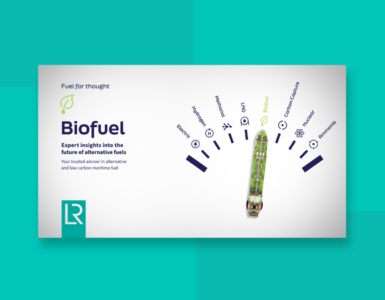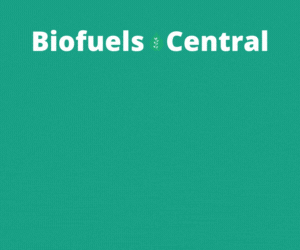Five European Union member states demand stricter oversight of biofuels such as used cooking oil, Euractiv.
[Euractiv] Five EU countries have demanded the European Commission establish a framework for stricter supervision of the use of biofuels in the bloc in the wake of a number of cases of fraud relating the sale of used cooking oil of unsustainable origin as transport fuel.The Netherlands, Belgium, France, Germany and Luxembourg issued a joint statement on the need to improve the supervision for the use of biofuels under the Renewable Energy Directive (RED II) in order to ensure the bloc better meets its targets for decarbonising transport.
EURACTIV has learned that the five countries will raise the issue at the environment ministers’ council on 10 June. The Dutch-led initiative comes as the European demand for biodiesel continues to grow.
🔥 What about we co-host a webinar? Let's educate, captivate, and convert the biofuels economy!
Biofuels Central is the global go-to online magazine for the biofuel market, we can help you host impactful webinars that become a global reference on your topic and are an evergreen source of leads. Click here to request more details
READ the latest news shaping the biofuels market at Biofuels Central
Stientje van Veldhoven, the Dutch secretary of state at the ministry of infrastructure and water management.
The market is growing, so supervision must grow alongside.
“In this way we guarantee the sustainability of the biofuels we use
“We are joining forces now, because we cannot do this without European cooperation,” she said, adding that stricter oversight was important not only for the climate, but also for the security of investments in the sector.
The initiative follows a number of alleged biodiesel fraud cases in which buyers were reportedly sold unsustainable used cooking oil (UCO) containing palm oil imported from outside the bloc. In the joint statement, the initiators said the cases showed that relying on certification and private oversight was not enough to ensure sustainability.
“The cases have shown us that consistent and stronger public supervision on the European market is necessary to reduce the risk of fraud, since public supervision bodies have the competence to actually commit to truth finding and check whether or not data is correct,” the statement said.
The five countries said the European minimum requirement for public supervision in the RED II should go beyond the current scope of Article 30(9), which requires that “competent authorities of the member states shall supervise the operation of certification bodies that are conducting independent auditing under a voluntary scheme”.
They are also demanding a proposed database of transport biofuels including descriptions of their origins and carbon footprint be established as soon as possible.
“We demand a quick and ambitious deployment of the European database mentioned in the article 28 of the directive, with the establishment of an EU supervision body charged with detecting and investigating suspicious trends from the database,” the statement said.
“This database would have to maximise synergies with existing national reporting processes, and reduce additional administrative burden to a minimum,” it added.
Progress on establishing such a database has been slow, said James Cogan, a policy adviser to Ethanol Europe, who commented that there are also no signs of progress being made.
James Cogan said.
They were supposed to have something ready this year.
“Now they say it will be the end of 2022. They still don’t know where the data will come from,” he said.
“Data on its own is no good without human intelligence, and there is no intelligence component included in the project,” Cogan said, adding that EU countries and the European Parliament should demand a proper solution.
“There should be a suitably qualified project director made responsible for it and responsible for reporting to all stakeholders,” he said.
Used cooking oil problems
Europe aims to decarbonise transport by 2030, though experts say this will prove challenging considering that electric cars still have a long way to go. Conventional and advanced biofuels are expected to cover the energy needs in the sector by 2030 and perhaps beyond.
However, critics say a lack of transparency about the origins of biofuels could derail the bloc’s efforts to decarbonise.
Used cooking oils (UCOs) used for the production of biodiesel are double-counted under the RED II because they can help decarbonise Europe’s transport sector.
But the directive does not distinguish between domestically collected oils and those which are imported from third countries. Critics suggest some of it contains palm oil, which the EU decided to phase out in order to slow deforestation in other parts of the world.
In June 2020, EURACTIV reported that the European Commission did not have a complete overview of the origin of UCOs used for biodiesel in the EU.
The concerns come after the UK and the Netherlands in 2019 launched an investigation into companies which had allegedly been selling unsustainable UCOs containing palm oil.
According to a report published on 21 April by environmental NGO Transport & Environment (T&E), China supplies more than a third (34%) of Europe’s UCO imports while almost a fifth (19%) comes from two major palm oil producers, Malaysia and Indonesia.
“Europe’s increased thirst for used cooking oil to power its transport sector is outstripping the amount leftover from the continent’s kitchens. This leaves us reliant on a waste product being shipped from the other side of the world,” said Cristina Mestre, biofuels manager at T&E.
In September, the EU Ombudsman launched a process over the European Commission’s refusal to grant public access to documents regarding the origin and amount of UCOs reported by all voluntary certification schemes for biofuels sustainability under RED II.
For their part, EU waste biodiesel producers (EWABA) have said the new EU certification schemes will have to comply with these stricter certification schemes as from the transposition deadline of the RED II in June.
EWABA said in an emailed response in May.
The improvements to certification schemes are partially based on industry’s input regarding possible weak spots in the supply chain.
“This imminent set of measures will significantly enhance verification.”
Five EU member states demand stricter oversight of biofuels, May 27, 2021








